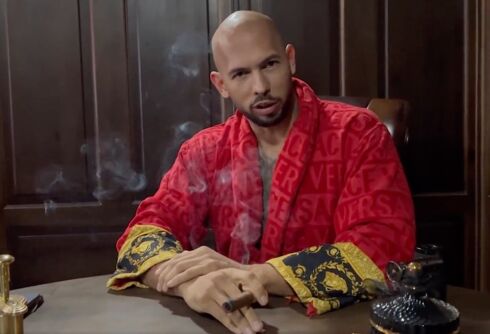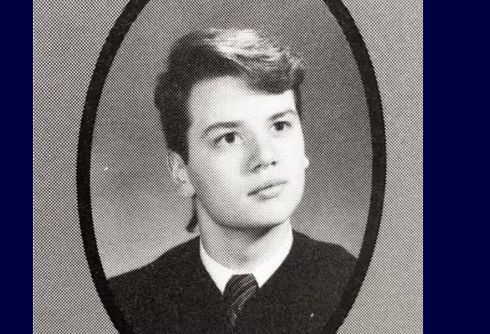Even though The Ellen DeGeneres Show is ending its nearly 20-year run this month, Ellen DeGeneres is still revealing secrets about the show’s early days and her future plans.
In a recent interview, DeGeneres revealed that in the early days of her show, she was forbidden from mentioning her same-sex partner or wearing jeans, in an attempt to downplay her lesbian identity for mainstream audiences.
Related: Ellen DeGeneres didn’t want ex-girlfriend Anne Heche to “dress sexy”
“I couldn’t talk about Portia,” DeGeneres told The Advocate. “I couldn’t say the word ‘we’ since that would imply there was someone special in my life. They told me to dress a certain way — no jeans, for example. I guess jeans were considered gay? Oh, and I couldn’t say that word — ‘gay.’ I wasn’t happy about it, so if the situation changed with the show, I knew I’d have some power to change the show.”
Never Miss a Beat
Subscribe to our newsletter to stay ahead of the latest LGBTQ+ political news and insights.
DeGeneres’ talk show began in 2003, nearly five years after the cancellation of her groundbreaking sitcom Ellen. After DeGeneres and her sitcom character, Ellen Morgan, both came out as gay in 1997, ABC slapped a parental guidance warning on the sitcom, despite its lack of sexual content, and stopped advertising around the show.
The network canceled the sitcom one year later despite DeGeneres’ plans for successive seasons showing Morgan facing homophobia and succeeding in business. After the cancellation, she couldn’t get work in Hollywood until she got the opportunity to launch her own talk show.
But when the show began, networks seemed reluctant to carry it. To make her more unthreatening to mainstream audiences, DeGeneres wasn’t allowed to mention her partner, Portia de Rossi and she wasn’t allowed to say the word “gay” or to wear jeans. While DeGeneres was unhappy about the restrictions, she knew if her talk show proved successful, she’d be able to change things.
Her show quickly became a hit, and she began talking about her partner and an audience-friendly brand of social activism, highlighting good-doers and people who bravely came out in challenging circumstances. She hoped those guests would serve as role models for others.
Moreover, the show allowed DeGeneres to access a wider audience than before, beaming into people’s homes every day rather than just once a week. As such, she paved the way for larger LGBTQ acceptance and a wave of queer characters and TV personalities who followed.
As for her future plans, DeGeneres said she’ll enjoy her temporary retirement before deciding what to do next.
In a farewell message delivered to her fans, DeGeneres wrote, “When we started this show in 2003, the iPhone didn’t exist. Social Media didn’t exist,” she wrote. “Gay marriage wasn’t legal. We watched the world change, sometimes for the better, sometimes not. But whatever was happening, my goal was always for the show to be a place where we could all come together and laugh for an hour.”
“Being invited into your lives has been the greatest privilege of my life and has brought me incredible joy,” she concluded. “Thank you. Thank you. Thank you. Thank you.”














